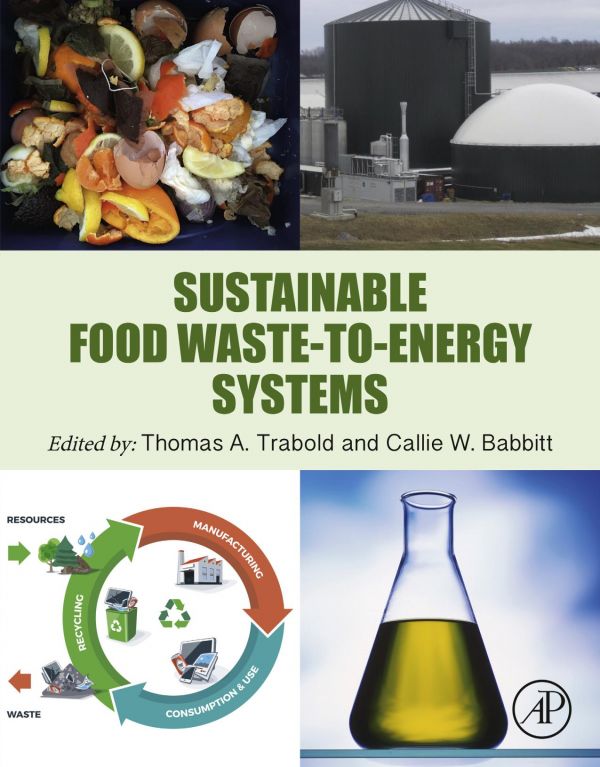Product desciption
Sustainable Food Wastetoenergy Systems Babbitt Callie W Trabold by Babbitt, Callie W.; Trabold, Thomas 9780128111574, 9780128111581, 0128111577, 0128111585 instant download after payment.
Sustainable Food Waste-to-Energy Systems assesses the utilization of food waste in sustainable energy conversion systems. It explores all sources of waste generated in the food supply chain (downstream from agriculture), with coverage of industrial, commercial, institutional and residential sources. It provides a detailed analysis of the conventional pathways for food waste disposal and utilization, including composting, incineration, landfilling and wastewater treatment. Next, users will find valuable sections on the chemical, biochemical and thermochemical waste-to-energy conversion processes applicable for food waste and an assessment of commercially available sustainable food waste-to-energy conversion technologies. Sustainability aspects, including consideration of environmental, economic and social impacts are also explored. The book concludes with an analysis of how deploying waste-to-energy systems is dependent on cross-cutting research methods, including geographical information systems and big data. It is a useful resource for professionals working in waste-to-energy technologies, as well as those in the food industry and food waste management sector planning and implementing these systems, but is also ideal for researchers, graduate students, energy policymakers and energy analysts interested in the most recent advances in the field.
Abstract: Sustainable Food Waste-to-Energy Systems assesses the utilization of food waste in sustainable energy conversion systems. It explores all sources of waste generated in the food supply chain (downstream from agriculture), with coverage of industrial, commercial, institutional and residential sources. It provides a detailed analysis of the conventional pathways for food waste disposal and utilization, including composting, incineration, landfilling and wastewater treatment. Next, users will find valuable sections on the chemical, biochemical and thermochemical waste-to-energy conversion processes applicable for food waste and an assessment of commercially available sustainable food waste-to-energy conversion technologies. Sustainability aspects, including consideration of environmental, economic and social impacts are also explored. The book concludes with an analysis of how deploying waste-to-energy systems is dependent on cross-cutting research methods, including geographical information systems and big data. It is a useful resource for professionals working in waste-to-energy technologies, as well as those in the food industry and food waste management sector planning and implementing these systems, but is also ideal for researchers, graduate students, energy policymakers and energy analysts interested in the most recent advances in the field


